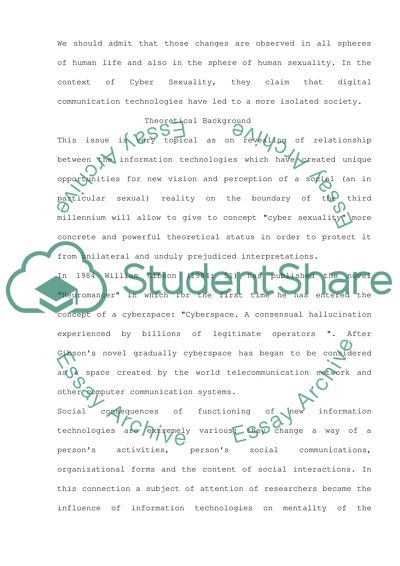Cite this document
(“Cyberculture and Cybersexuality Essay Example | Topics and Well Written Essays - 2500 words”, n.d.)
Retrieved from https://studentshare.org/gender-sexual-studies/1501426-cyberculture-and-cybersexuality
Retrieved from https://studentshare.org/gender-sexual-studies/1501426-cyberculture-and-cybersexuality
(Cyberculture and Cybersexuality Essay Example | Topics and Well Written Essays - 2500 Words)
https://studentshare.org/gender-sexual-studies/1501426-cyberculture-and-cybersexuality.
https://studentshare.org/gender-sexual-studies/1501426-cyberculture-and-cybersexuality.
“Cyberculture and Cybersexuality Essay Example | Topics and Well Written Essays - 2500 Words”, n.d. https://studentshare.org/gender-sexual-studies/1501426-cyberculture-and-cybersexuality.


